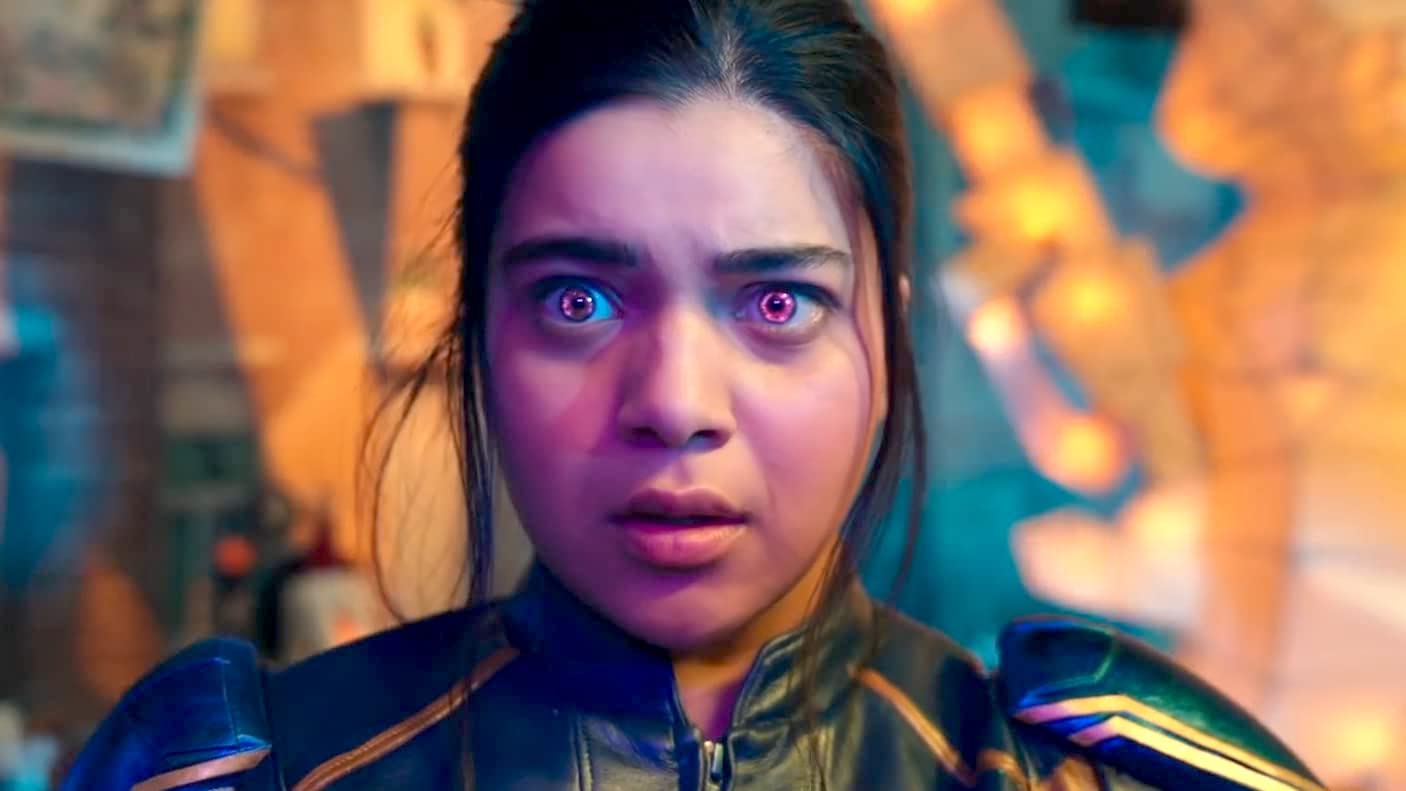‘Ms. Marvel’: Let’s Talk About the Partition of India

Ms. Marvel premiered on June 8, 2022, and has received highly positive reviews for its spirited, representative, coming-of-age story. The first few episodes see Kamala Khan (Iman Vellani) experience an awakening of her superhuman powers when she puts on a bangle sent to her by her grandmother Sana (Samina Ahmad). She quickly works to hone her powers and become a true superhero herself, just like her idol, Captain Marvel.
However, Khan is quickly learning that being a superhero is more than saving children from falling buildings. As the Djinn, or ClanDestines, approach Khan, she recognizes that there is a history behind her powers that is the key to understanding them. It turns out the Djinn were exiled from the Noor dimension and want Khan to help them return. They also reveal to her that her great-grandmother Aisha (Mehwish Hayat) is one of them, and the original owner of the bangle.
As Khan comes to realize that the Djinn have more nefarious intentions than merely returning home, she has a vision of a train. While talking to Sana, she learns Sana had the exact same vision as her. As a result, she travels to Pakistan to reunite with Sana and to search for answers. In the four episodes that have streamed so far, viewers will notice that Khan’s visions, flashbacks, and the tales from the Djinn and her family, always seem to circle back to one specific event: the partition of India.
The Partition in Ms. Marvel
The partition was first mentioned in the second episode of Ms. Marvel, when it was revealed that Khan’s grandmother, Sana, experienced the partition firsthand and temporarily lost her way. However, Sana managed to mysteriously find her way back and was reunited with her father. When Sana and Khan are reunited in Pakistan, they have a particularly poignant conversation about Sana’s experiences with the Partition.
In particular, Sana opens up about the devastating, lingering impact of the partition. She mentions how she has a passport in Pakistan, but that her roots are in India. However, between Pakistan and India, a border has been constructed that is filled with a bloody, painful history. Meanwhile, the partition caused a national identity crises as the country was divided along religious lines between Hindus and Muslims.
Following Khan’s conversation with Sana, she experiences another vision. This time, it sends her back to the night of the partition. Viewers will have to wait for the next episode to see Khan’s full vision.
What is the Partition of India?
The partition of India that has been mentioned multiple times in Ms. Marvel is, indeed, a real event. This event took place on August 15, 1947, and saw India divided into two independent nations, India and Pakistan. The reason for the partition ties back to British rule of the Indian subcontinent and World War II. The British crown had ruled over India since 1858, and World War II saw Britain propel India into the war without its consent.
By the time the war ended, Britain simply didn’t have the resources to control India and decided to withdraw and make it an independent nation. However, negotiations for India’s independence were deadlocked over religious tensions. Political party the All-India Muslim League demanded the establishment of a separate Muslim-majority nation-state, Pakistan.
With a surge in violence between Hindus and Muslims, and Britain seeking a hasty solution for India’s independence, the Indian Independence Act 1947 was passed. On August 15, 1947, British India was partitioned into the independent India and Pakistan. What followed was an exacerbation of religious tensions and the displacement of millions of individuals. It sparked widespread migrations and a desperate refugee crisis on a massive scale. During the ensuing violence and chaos, it is estimated that between half a million and 2 million people died. India and Pakistan still share a conflicted relationship to this day.
The partition’s prevalence in Ms. Marvel is important because the stories of those who were displaced and impacted are real and important, and need to be known and heard.
(featured image: Disney)
Have a tip we should know? tips@themarysue.com